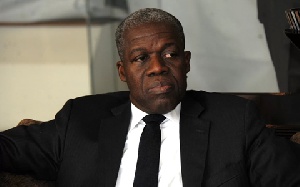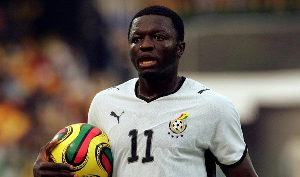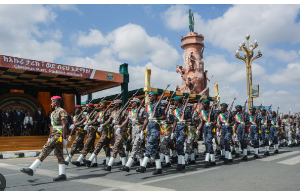May the Almighty God keep citizens and all those who abide in our land safe and may His Spirit comfort the dead and continue to give hope to the living Amen.
Man, also holds in his spirit as well in his mortal hands the power to fight all forms of human disease and forge against all forms of ill health. The big question then is, what can you really do if your relation or someone whom you were with suddenly collapsed in the middle of the streets of Accra where there were no Doctors or Nurses? What is certain in such a circumstance is that, most Ghanaians including myself will either scream for help, call an ambulance that may or may not arrive on time or carry on some untrained rudimentary emergency procedures to save the suffering person. It is not the fault of those Ghanaians, but the collective failure of a society whose educational system is faced with challenges.
In September 2017, I was privileged to find myself in Beijing Silk Market to acquire for myself some clothes. After making some fine selections, I asked the shop attendant for the bill. When he made the price offer to me, I made a counter-offer in an attempt to bargain. Although bargaining was allowed in the market, the shop attendant pointed an index finger to his head and then he showed me a thumb in a gesture to say that my brain was ok, then he pointed the same index finger to his eye and then again showed me his thumb to say that my eyes was okay for such fine selections and finally he momentarily put his palm unto his chest and then waved it disgustedly in front me to say that I had a bad heart for offering such a low price. Well, that was his assessment of me at the time. Like my Priest would say: Education should train your brain, your spirit, your heart and as well as your hands. I agree that a Nation cannot offer absolute education to its citizens but it must incessantly labour diligently to make its citizens aware of the key skills that they need for their existence.
So, I ask the question again, what can you do should someone collapse in front of you on the field? Well, in all honesty, I cannot do much than to summon for help. Now, at the time the Vice president collapsed in the gymnasium, what did those around him do? Called an ambulance and waited? Put him in a private car and raced to a nearby Hospital? Could and did those around him perform CPR on him as an emergency procedure while they waited on the ambulance? Did their education train and equip them in such a basic and critical area? Are we teaching people in our schools what is essential and what they need to know? Should we bring this under the educational umbrella as a practical technique and a tool to save lives?
In the long history of this Nation, our educational system has not really taught us to be rightly brave, and courageous and to be men of integrity. It has not really taught us to explore the wonders of science, learn how to swim and conquer the rivers and the ocean depths and the peaks of the earth and most unfortunately, it has not taught us to fight to save lives outside clinical confines.
But there is hope. The educational system can be reformed to imbibe some of these principles and cultures, to teach our kids and young adults the essentials, and make them know that completing a degree in itself is not an end to learning but a beginning.
CPR stands for Cardio-pulmonary Resuscitation. There are three words here. Cardio represents the human heart organ, pulmonary refers to the lungs and resuscitation refers to the brain. There are two key things of CPR: Pushing or compression unto the chest and breathing into the lungs to restore life to the brain. It is done for someone who has just fainted or has had a near drowning situation.
People faint because they do not have enough oxygen flow into the brain. The oxygen is carried by blood. It takes 4 to 6 minutes for someone to die if his brain is completely cut-off oxygen. Now how long does an ambulance take to get to an emergency scene after a distress call? Even though an ambulance’s emergency response will depend largely on its closeness to the distress location, it usually takes more than 6 minutes to get to the scene of emergency by which time the victim would have died and so it is not wise to rely on the paramedics or the ambulance crew to give the CPR. Everybody that abides in this land whether Ghanaian or non-Ghanaian, young or old, literate or nonliterate should be trained in how to administer CPR because the people who are to give CPR to the collapsed victim are the people close to the scene of emergency not the paramedics or the ambulance crew.
Now if someone suddenly collapses or is rescued from a near drowning situation and they are not responding, start CPR immediately by laying him down on his back, arms by the body with legs together while you scream to someone to call an ambulance. Then with your one hand on top of the other, push against the victim’s chest repeatedly at the mid nipple line at a rate of 100 pushes per minute. After 30 pushes, tilt the person’s chin, pinch the victim’s nose with your thumb and index finger, open his mouth and then blow 2 breaths into his lungs. At each breath make sure the victim’s chest rises and falls. Start another 30 compressions and do this for 5 cycles or 2 minutes and check to see if the victim is breathing on his own.
Families, Churches, Schools and Companies should take classes in CPR while we call for Government support to make it a handy skill for all who abide in our land in order to save lives.
May the Soul of the Late Ex-Vice President Paa Kwesi Bekoe Amissah Arthur rest in peace. Amen.
Opinions of Saturday, 25 August 2018
Columnist: Mark Benyah







![A file photo of the private jet [Image Credit: Yaw Pare via Facebook] A file photo of the private jet [Image Credit: Yaw Pare via Facebook]](https://cdn.ghanaweb.com/imagelib/pics/153/15348139.295.jpg)







